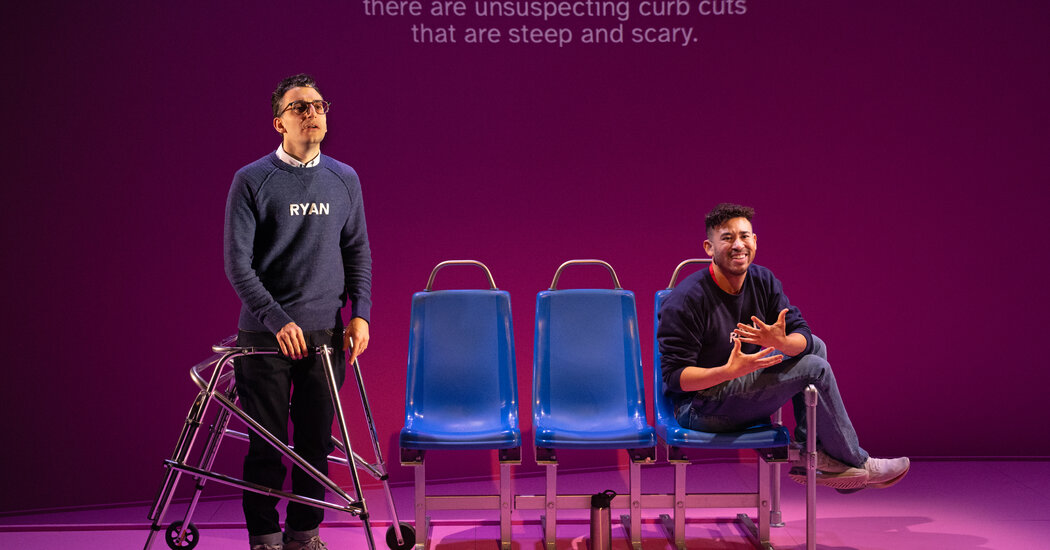The Obie Awards, a scrappy but venerable annual competition honoring the best theater staged Off and Off Off Broadway, has chosen “Dark Disabled Stories,” Ryan J. Haddad’s autobiographical work inspired by his experiences navigating the city with cerebral palsy, as the best new American play.
The prize was announced on Saturday night, both by news release and on Spectrum News NY1, as the American Theater Wing, which presents the Obies, decided to forgo a costly ceremony — in most nonpandemic years, the Obies have been handed out at a boozy and often boisterous party — and instead to give grants of $1,000 to $5,000 directly to the winning artists and arts institutions.
“These are unprecedented times, and it’s extremely challenging for theater right now, so we absolutely want to celebrate the achievements of Off and Off Off Broadway, but in doing so we want to have the most impact by putting money directly in the pockets of the artists and the companies making the work,” said Heather A. Hitchens, the Wing’s president and chief executive. “Everybody likes a party, and maybe some day it will make sense to do that again, but we’re not made of money — we’re a nonprofit, so how can we use our resources to be the greatest force for good right now?”
The Obies, created by the Village Voice in the mid 1950s, have been in flux for years as the Voice foundered and the pandemic battered the theater industry. The Wing, with a board led by artists, has kept the Obies afloat with a combination of in-person and streaming ceremonies.
The Obies proudly have no defined categories or set number of winners — a panel of judges, this year led by the director David Mendizábal and the critic Melissa Rose Bernardo, determines how to structure the honors each season. The awards announced this weekend were for shows that opened Off or Off Off Broadway between Sept. 1, 2022, and Aug. 31, 2023.
The judges gave two awards for playwriting. One went to Hansol Jung for “Wolf Play,” about a twice-abandoned adopted boy who reacts to his trauma by behaving like a wolf and is depicted by a puppet; the play was staged first at Soho Rep and then at MCC Theater, in collaboration with Ma-Yi Theater Company. The other playwriting award went to Bruce Norris for “Downstate,” about a group home for men who are registered sex offenders; that play was staged at Playwrights Horizons in a production developed by Steppenwolf Theater Company in Chicago and the National Theater in London.
“Dark Disabled Stories” was presented by the Public Theater and produced by the Bushwick Starr. (In the wake of the pandemic, collaboration has become the norm in nonprofit theater, so many of the winning shows are credited to more than one organization.)
The Obies honored four performers: William Jackson Harper for “Primary Trust,” Marla Mindelle for “Titanique,” Zuleyma Guevara for “Sancocho,” and Maryann Plunkett for “Deep Blue Sound,” as well as the directors Dustin Wills, Shayok Misha Chowdhury and Faye Driscoll, the costume designer Enver Chakartash and the lighting designer Barbara Samuels.
Among the other Obie honorees: lifetime achievement awards were given to Carole Rothman, the outgoing artistic director of Second Stage, as well as to Peggy Shaw and Lois Weaver, who made theater together as Split Britches. Sustained achievement awards were given to the performers Shannon Tyo, John Douglas Thompson and K. Todd Freeman, to the directors Eric Ting and Pam MacKinnon, and to dots, a set design collective, and Mikaal Sulaiman, a sound designer.
There were a number of other awards, citations and grants; for a complete list see obieawards.com.


